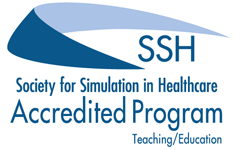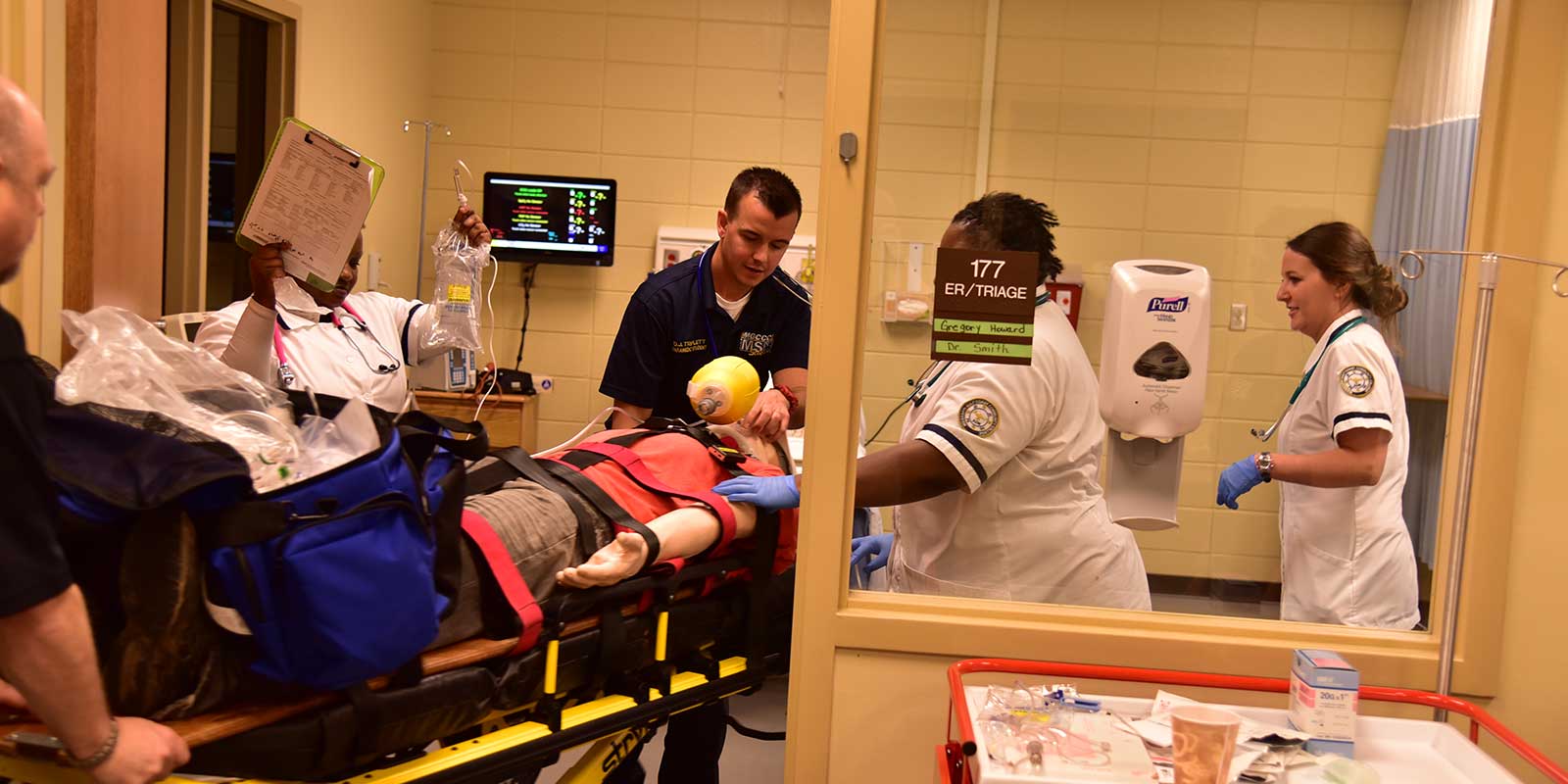State of the Art Training and Education Facility
Mission
The MGCCC Bryant Center Healthcare Simulation Center (BCHSC) strives to meet the educational and communal needs of the Mississippi Gulf Coast through the delivery of innovative learning content in a realistic environment with a focus on interprofessional education, state-of-the-art technology, leadership, and community service.
Vision
To improve student success and quality care through simulation-based teaching by providing an advanced globally competitive learning environment.
About the Bryant Center Healthcare Simulation Center
The Bryant Center Healthcare Simulation Center, located at 19330 Hwy. 67, Biloxi, Mississippi, serves as a significant learning resource environment for the School of Nursing and Health Professions. The 4,812 square foot six-bed unit hospital space is a multifunctional, interprofessional teaching and learning laboratory with each unit containing a bed, bedside table, over bed table, bedside chair, and privacy curtains. The orientation of each unit closely mirrors a clinical learning environment. This includes having access to medical equipment like headwall systems, vital signs monitors, oxygen and IV devices, medical supplies, diagnostic equipment, electronic charting systems, emergency crash carts, and simulated medications. Considering the fact that educational and technology requirements will likely change over time, the BCHSC has a flexible design to accommodate a variety of health-related training settings, like emergency, obstetric/pediatric, critical care, medical and surgical, community/home health, and other specialty areas and activities.
Located on the second floor of the Bryant Center at Tradition, the BCHSC offers four enclosed control rooms with shared direct observation to at least one simulation clinical room. Each control room is outfitted with one-way observation mirrors and state-of-the art audio and video recording capabilities. To support the simulation center is the debriefing space, which is considered to be a key aspect of the simulation learning environment and an essential part of the learning experience. The four debriefing rooms are in close proximity to the simulation space and allow for in-depth learning. Each room provides a space where instructors and students can review recordings and the performances of self and others, and critique the experiences.
Equipment
The Bryant Center Healthcare Simulation Center employs the use of a vast array of simulation modalities in an interactive learning environment for inter-disciplinary, interprofessional, multi-specialty clinical training, academic initiatives, and program-specific projects. BCHSC houses an extensive investment of simulation technologies and related clinical capital equipment.
The 20 mid-to high fidelity manikin-based patient simulators include 10 adults, 1 child, 5 infants, 3 neonates, and 1 birthing simulator. Multiple types of virtual reality devices and various task trainers are utilized for instructional and training purposes. Examples include hearing voices training modalities, wearable simulators for standardized patients, Telehealth/telemedicine equipment and cart, 3D anatomy and physiology Anatomage Table, and a 3D modeling design printer. All are commonly employed as part of various teaching activities in the Center.
Every effort is made to replicate a real world clinical environment encountered by the learner. Therefore, standard clinical equipment, monitors, and tools are utilized in training exercises and workshops.
Faculty and Staff
The Bryant Center Healthcare Simulation Center administrators, faculty, and staff provide supportive services to faculty and students. With input from the BCHSC Champions and Advisory Committee, resources are identified to help support and enhance curricula and meet program-specific student learning outcomes. BCHSC Champions help to enrich the diversity of simulation practice in a number of ways. They help by:
- Serving as simulation leaders and coaches
- Collaborating with administrators, program directors, and faculty related to simulation training and experiences
- Reviewing and making recommendations related to BCHSC Policies and Procedures
- Mentoring new faculty, including adjuncts and nurse navigators
- Facilitating orientations for faculty and students.
- Attending and participating in professional development opportunities
- Assembling equipment and supplies, and setting up simulation experiences
Robert Collins AA, BS, MS
AV/Simulation Coordinator
(228) 267-8663
robert.collins@mgccc.edu
Mikayla Denton AA, BS, MS
Simulation & Workforce Administrative Assistant
(228) 267-8648
mikayla.denton@mgccc.edu
Facility Tour or Rental Request
SON&HP Request
Simulation Center Accreditation
Biloxi, MS – The MGCCC Bryant Center Healthcare Simulation Center for the School of Nursing and Health Professions at Mississippi Gulf Coast Community College received 5-year accreditation in Teaching/Education from the Society for Simulation in Healthcare.
The Society evaluated the Center against seven core standards: Mission & Governance, Program Management, Resource Management, Human Resources, Program Improvement, Integrity, and Expanding the Field.
ACCREDITED in the area of Teaching & Education. This status will be granted for a period of five years from December 18, 2024 through December 31, 2029. A reaccreditation application is due by July 15th of the year in which the Program’s accreditation is set to expire.


